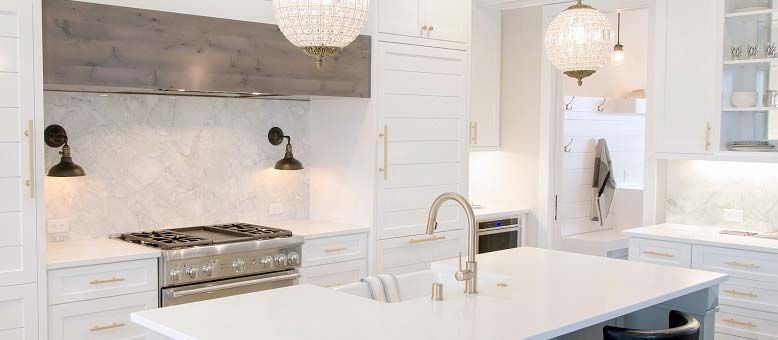What is home equity and how do I use it?
Learn about how to use the equity in your home, how to calculate it, and the pros and cons of using it to help you reach your financial goals sooner.
If you’re a homeowner, chances are you know that building equity in your home is a good thing. However, you might not find it so easy to really understand what home equity is, and how it can help you reach other financial goals.
Learn about how to use the equity in your home, how to calculate it, and the pros and cons of using it.
What is home equity?
Home equity is simply the difference between the value of your home and how much you owe on the mortgage. In Canada, homeowners can borrow up to 80% of their home’s appraised value. Learn more at the Financial Consumer Agency page on borrowing against home equity.
How to calculate your home equity
Calculate your home equity with this equation:
The value of your property – the balance remaining on your mortgage = home equity
For example, if your home is worth $500,000 and you owe $300,000 on your mortgage, your home equity is $200,000.
Maybe you’ve worked hard to pay your mortgage down early by making extra payments. Or maybe you’ve owned your home for several years and property values have increased in your area. These situations may mean you’ve built up a good amount of equity in your home.
What you might not realize is that you can tap into that equity to help you meet your other life goals, such as buying a cottage, paying for your kids’ post-secondary schooling, or renovating your home.
Most of the time, you’ll pay less to borrow against your home equity than you would if you got a regular unsecured loan or credit line.
When your home equity loan application gets approved, a lending limit of not more than 80% of the home value gets set. This means that you won’t need to re-apply with a full credit application each time you want to access your home equity based on the appraised value of your home at the time of the application.
What can I use my home equity for?
Ultimately, once you tap into your home equity, you can use the money for whatever you want. However, three of the common ways people use their home equity include paying for renovations, buying a second property, or making other big purchases like paying for a child’s tuition or buying a car.
Using home equity for renovations
If you’re wondering how to use home equity for renovations, you have a couple of choices, considering the scope and timeline of those projects.
Home renovation projects with long flexible timeline requiring many smaller building supply purchases could be funded through a home equity credit line. With a credit line, you only pay interest on the amount you borrow. Then as you pay it down you can reborrow back up to your set limit.
If, however, you need a larger lump sum to make one large supply purchase, a fixed-rate mortgage or loan component could be a better option due to lower interest rates and lower payments. Some construction companies require deposits and periodic payments as renovation projects progress, so ask about payment timelines when you’re making a list of questions to ask when hiring a contractor.
Using home equity to buy a second property
If you’ve considered buying a rental property, cottage, or second home, your home equity can help you with the down payment, reducing (or eliminating!) the mortgage you take out for that property.
Using home equity as a down payment can give you more flexibility with repaying the loan, as you won’t have the same payment structure as a mortgage. You’ll generally only have to pay the monthly interest, rather than interest and principal, but you can also pay it back as quickly as you want without the restrictions or pre-payment limits that come with a mortgage.
Pros and cons of using home equity
While home equity can be a powerful, flexible, yet simple way to gain access to money when you need it, it is also important to understand the potential risks of home equity loans.
Pro: You only have to apply once
Once you get approved for a home equity loan, you don’t need to requalify to borrow more as long as the total amount you’re borrowing doesn’t excess the original lending limit. So there’s no need to go through the hassle of a new credit application, credit check, or home appraisal.
Pro: You’ll get a lower interest rate
When you borrow against your home equity, it’s less risk for lenders as they secure a mortgage on your property. This means you get better rates than you would on an unsecured credit line or loan.
Pro: Possible tax deduction on interest paid
If you borrow against your home equity to invest, you could potentially write off the interest charged.
Pro: No restrictions on what you use it for
Unlike student loans or car loans, you can use home equity loans for anything you choose - you won’t have any restrictions.
Con: Potential legal, appraisal, administration fees
Refinancing your home involves a full credit application with debt and income verification requirements as well as a credit check. Registering a new mortgage on the property means legal fees and usually an appraisal fee to verify the property value. You might also have to pay an administration fee.
Talk to your advisor about what to know when you’re refinancing your home as each financial institution might treat these fees slightly differently.
Con: Property value decrease
It’s true that many homes in Canada have jumped in value over the past five to ten years, giving homeowners more equity to borrow against. However, if the economy shifts, your house value drops, and you need to sell your home due to job loss or lower income, you could find yourself owing more than your home is worth – that’s called having an underwater mortgage.
Con: Serial borrowing leads to more debt
Some homeowners find access to home equity a tempting way to get their hands on more money whenever they need it...repeatedly. If you or your spouse have spending issues, tapping into your home equity might be a temptation best avoided.
Con: Your home secures your borrowing
It is possible to use home equity to borrow money at low rates and then purchase investments with a potential return higher than the borrowing rate.
So, while you can use your home equity to buy a rental property, it isn’t always the best option. Before you do this, think carefully about whether you want to use your residence as the collateral to borrow money for investing. After all, should you fall behind on the home equity loan, mortgage, or credit line, you risk losing your family’s home.
How do I use the equity in my home?
To use the equity in your home, you’ll need a way to turn it into cash. Some lenders offer mortgage components, credit lines, loans, or hybrid accounts such as the Manulife One account – which is a unique yet simple mortgage, bank account, and credit account all rolled into one.
How to unlock the equity in your home
Fill out a home equity loan application to unlock the equity in your home. This is similar to a regular credit application. Your lender will also arrange for an in-person or online appraisal to determine the current market value of your home. Once your credit application, income verification, and appraisal are complete, you and your lender can discuss the best way to access the additional funds you need.
Keep in mind that home equity alone isn’t enough to get your loan approved. You will still need enough household income to qualify to carry the mortgage payments on the new limit amount of 80% of the home value - even if you aren’t accessing the additional equity and funds immediately.
---
Before jumping in, consider the costs, benefits, and disadvantages of tapping into your home equity and how well it aligns with your life goals. Borrowing against home equity isn’t the right choice for everyone. However, used wisely, your home equity can be a powerful tool to help you build or strengthen a strong financial foundation.


